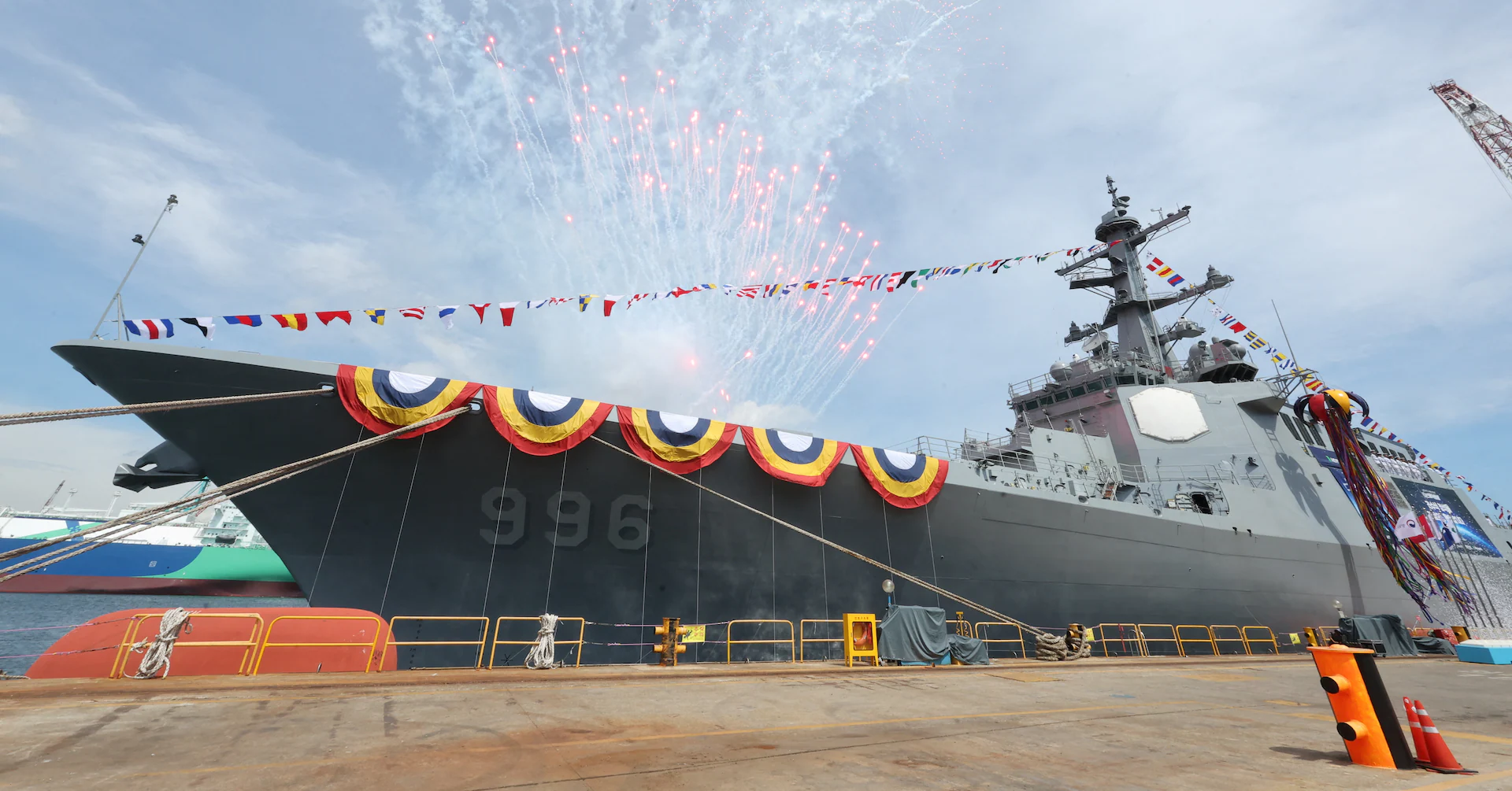
ULSAN, South Korea, Sept 18 (Reuters) – South Korea’s HD Hyundai Heavy Industries is in talks with multiple companies about buying a U.S. shipyard, a senior company executive said, seeking to tap into President Donald Trump’s push to revive America’s ailing shipbuilding industry.
Sign up here.
“It seems to be clear that we need to build a manufacturing base in the U.S. sometime in the future,” Jeong said on Wednesday, declining to name any companies involved in the talks or to give the scale of any potential investment.
“The U.S. is apparently facing a situation that pushes it to inevitably open the shipbuilding market,” said Jeong, given the widening gap in naval capabilities between the United States and China and the lack of sufficient U.S. capacity for building warships.
The U.S. “will have to utilise the infrastructure and capacities built already by its allies to overcome a short-term ship shortage.”
U.S. shipyards, which had the world’s highest production capacity during World War Two, had a global market share of just 0.04% in 2024, according to U.N. Trade and Development data.
China and South Korea are now responsible for 83% of global commercial shipbuilding, the data also shows.
South Korea pledged in July to invest $150 billion in U.S. shipbuilding, as part of $350 billion in investment funds that Seoul agreed to put into U.S. projects as part of negotiations over lower tariffs.
Jeong said challenges to building ships in the United States include a shortage of skilled workers.
“Another issue is retention. Many U.S. shipyard workers quit within a year,” he said.
It could take between three and five years for Hyundai to train U.S. workers to boost productivity, Jeong said, citing the company’s experience in setting up a shipyard in Peru.
US LAWS RESTRICT FOREIGN SHIPBUILDERS
HD Hyundai Heavy christened on Wednesday in its Ulsan yard an 8,200-metric ton, Aegis-equipped destroyer to be delivered to the South Korean Navy by end-2026.
The company can build such warships in less than two-thirds of the time required by U.S. peers, Jeong said.
Jeong said the U.S. Congress is considering amendments to those acts to help foreign companies build ships for the U.S., although it’s unlikely the century-old laws would be scrapped entirely.
Still, despite the challenges, there is no other market for warships as attractive as the U.S., he said.
But, “the undeniable reality is that if you want to do business with the U.S., you need to do it in the U.S.,” Jeong said.
Reporting by Heejin Kim; Editing by Ed Davies and Tom Hogue



